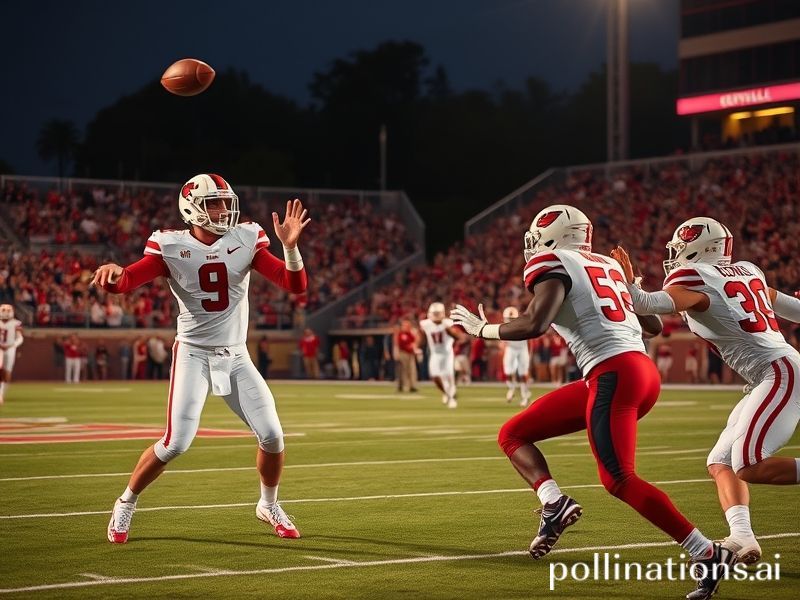Bowling Green vs Louisville: How America’s Most Parochial Rivalry Proves Humans Prefer Cosplay Warfare to Real Conflict
**Bowling Green vs Louisville: A Quaint American Spat the World Can Safely Ignore**
In the grand tapestry of global conflict—where nuclear powers play chicken in the Taiwan Strait and climate change turns entire nations into aquariums—it’s almost refreshing to witness a dispute so parochial it could fit in a bourbon bottle. The latest installment of Bowling Green versus Louisville, a rivalry that makes the Hatfields and McCoys look like the United Nations, reminds us that Americans possess an almost endearing talent for turning municipal grievances into blood sport.
For our international readers frantically Googling: Bowling Green is a Kentucky town of 72,000 souls, while Louisville is its metropolitan big brother, home to the Kentucky Derby and that beverage that makes British tourists forget their colonial guilt. Their annual football clash—known locally with characteristic subtlety as “The Governor’s Cup”—represents something far more profound than grown men chasing an oblong ball: it’s democracy’s answer to gladiatorial combat, except the lions are unionized and the Christians have excellent dental plans.
From our vantage point in the international press corps, this American pastime offers a fascinating anthropological study. While Europe fragments over energy policy and Asia balances on the precipice of conflict, Kentucky’s finest divide themselves over… what exactly? A trophy that looks suspiciously like a silver spittoon? The right to claim superior barbecue techniques? Bragging rights that matter precisely until the next harvest moon?
The global implications are, mercifully, nonexistent—which in 2024 feels almost revolutionary. When Ukrainian cities exchange actual artillery fire and Myanmar’s junta converts monasteries into shooting galleries, there’s something perversely comforting about watching Americans channel their aggression into structured violence with time-outs and commercial breaks. It’s like observing a society that replaced actual warfare with cosplay warfare, complete with marching bands and overpriced nachos.
The economic impact ripples outward like a stone dropped in a very small pond. Local bars will sell watered-down beer at criminal markups. Motels with questionable hygiene standards will achieve 100% occupancy. The state’s GDP will experience a bump roughly equivalent to Liechtenstein’s annual chewing gum expenditure. Meanwhile, international markets remain blissfully indifferent—a reminder that some American passions translate about as well as cricket explains itself to Kansans.
What makes this ritual particularly poignant is its innocent narcissism. While the world burns—literally, in some cases—these communities invest their emotional energy in a game whose outcome affects nothing beyond regional pride and the employment prospects of 20-year-olds who can run fast. It’s either profoundly stupid or brilliantly evolved, depending on your caffeine intake.
The players themselves—amateur athletes in everything but their compensation—represent America’s curious relationship with higher education. They’ll batter each other’s brains for our entertainment, generating millions in revenue while earning degrees in “sports management” and praying their knees survive long enough to graduate. In most countries, this would be called exploitation. In America, it’s called Saturday.
As the final whistle blows and one side claims hollow victory, the globe will continue its inexorable spin. Climate negotiators will keep not negotiating. Authoritarians will keep authoritarianing. And somewhere in Kentucky, grown men will cry over a children’s game while wearing another man’s name on their backs—a ritual as American as apple pie and cognitive dissonance.
In the end, Bowling Green versus Louisville offers the world a precious gift: proof that humans can still channel their tribal instincts into something that, while monumentally silly, at least doesn’t require refugee camps. And in our current century, that’s what passes for progress.







